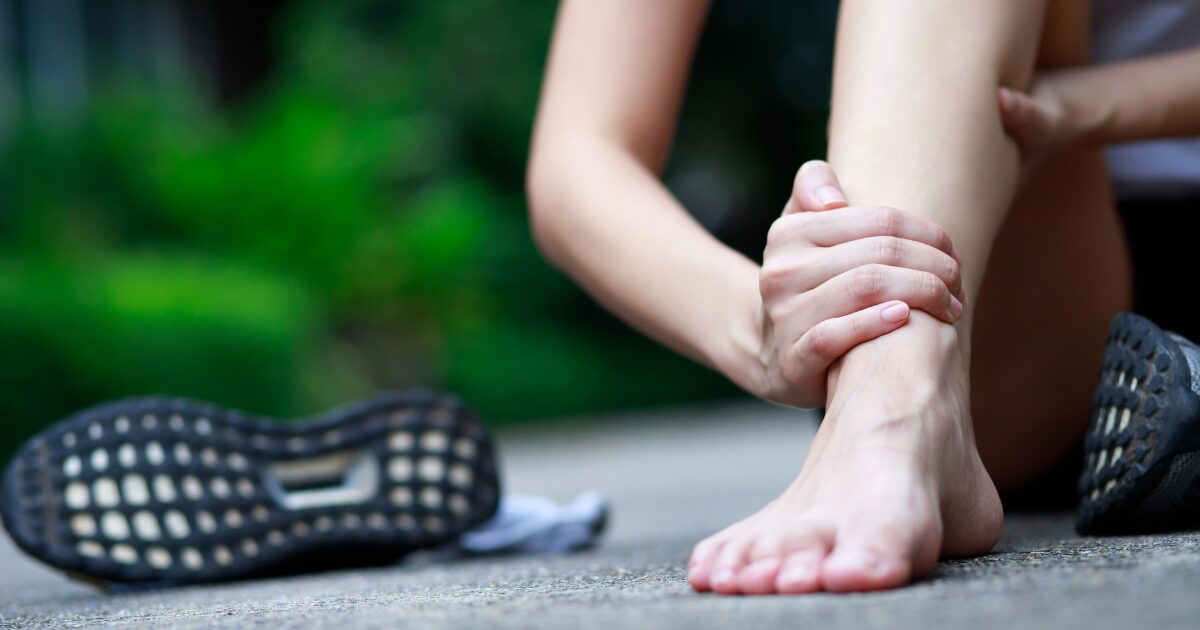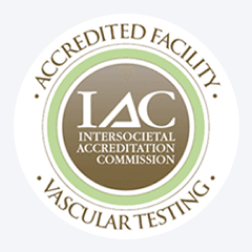It’s not uncommon to notice veins on your hands becoming more prominent over time. As we age, our skin naturally thins and loses elasticity, which can make veins stand out more than before. In many cases, visible hand veins are harmless and simply part of the natural aging process.
However, if your veins are not only visible but also painful, throbbing, or swollen, that discomfort could signal an underlying vascular issue. While it’s possible to experience vein pain in your hands or arms, these symptoms are far more common in the legs, where blood flow must work harder against gravity.
Let’s explore what can cause veins to hurt, when it might be a concern, and why vein discomfort in the lower extremities is worth paying close attention to.
Why Veins Become More Noticeable in the Hands
Several everyday factors can cause hand veins to appear larger or more prominent. Most of these are harmless, but understanding them can help you recognize when to seek medical advice.
1. Natural aging
As collagen and fat beneath the skin decrease with age, the skin becomes thinner and more translucent. This allows veins to become more visible and may make them feel slightly more sensitive or tender at times.
2. Exercise
During physical activity, blood pressure increases to supply oxygen-rich blood to your muscles. This temporarily pushes veins closer to the skin’s surface. Those who lift weights or engage in regular strength training may notice their veins appear more pronounced even at rest.
3. Heat exposure
Warm weather or elevated body temperature causes veins to dilate to help cool the body. This dilation can sometimes lead to mild aching or discomfort, especially in people with more delicate or visible veins.
4. Low body fat
Body fat acts as a natural cushion. People who are very lean or who have lost significant weight may notice that their veins, particularly in their hands, appear more prominent.
When Painful Veins Could Indicate a Problem
While visible veins are usually nothing to worry about, painful or swollen veins could suggest a more serious vascular issue.
Varicose veins
Though typically associated with the legs, varicose veins can occasionally appear in the hands or arms. They develop when vein valves weaken, allowing blood to pool rather than flow efficiently back to the heart. This can cause visible bulging, aching, or heaviness.
Superficial thrombophlebitis
This occurs when a vein near the surface becomes inflamed, often due to irritation or injury. The affected vein may feel hard or tender to the touch. While often harmless, it’s important to rule out infection or clotting issues.
Deep vein thrombosis (DVT)
DVT is a blood clot that forms deep within a vein. It most often occurs in the legs, but in rare cases can develop in the arms or shoulders. DVT is a medical emergency that requires immediate attention, as clots can travel to the lungs.
Why Vein Pain Is More Common in the Legs
Although it’s possible to develop painful veins in your hands, the legs are far more susceptible to vein issues. That’s because leg veins work constantly against gravity to return blood to the heart. Over time, pressure on these veins can lead to chronic venous insufficiency or varicose veins all of which can cause pain, swelling, and visible discoloration.
When vein valves in the legs weaken, blood begins to pool, increasing pressure inside the vein walls. This can result in a heavy, throbbing sensation, especially after long periods of standing or sitting.

Common symptoms of vein disease in the legs include:
- Aching, cramping, or throbbing sensations
- Swelling around the ankles or calves
- Itching or skin discoloration
- Bulging, rope-like veins on the surface of the skin
If you experience any of these symptoms in addition to visible veins, it’s a good idea to schedule a vascular consultation.
Treatment Options for Painful or Bulging Veins
The good news is that both hand and leg vein issues are highly treatable. At United Vein & Vascular Centers (UVVC), we specialize in minimally invasive procedures designed to restore healthy circulation and relieve discomfort.
These procedures require little to no downtime and are performed on an outpatient basis. Most patients experience symptom relief shortly after treatment.
When to See a Vein Specialist
If you’re experiencing painful veins, it’s worth discussing your symptoms with a medical professional to rule out vascular disease or clotting issues. However, if your discomfort occurs primarily in your legs or lower extremities, you may be showing early signs of venous insufficiency—a progressive condition that can worsen if left untreated.
At United Vein & Vascular Centers, our board-certified vein specialists focus on diagnosing and treating lower extremity vein conditions, helping patients find long-term relief and confidence in their health.
Schedule Your Vein & Vascular Consultation
Whether your veins are painful, bulging, or simply more visible than before, the experts at United Vein & Vascular Centers can help. Our team offers a full range of minimally invasive vein treatments tailored to your specific needs.
Contact us today to schedule a consultation at one of our convenient locations and learn how we can help you restore healthy circulation and comfort.
Frequently Asked Questions
Not always. Painful veins can result from heat, exercise, or temporary swelling. However, if they become swollen, warm, or discolored, it’s best to have them evaluated by a vascular specialist.
Heat causes veins to expand to regulate body temperature. This expansion increases pressure inside the vein, sometimes leading to mild aching or throbbing sensations.
Yes. Treatments like sclerotherapy not only reduce discomfort but also improve the appearance of visible veins, helping you feel more confident and pain-free.
Find a Vein & Vascular Specialist Near You
With 45+ locations nationwide, expert vein and vascular care is closer than you think. Find your nearest United Vein & Vascular Center and start your journey toward improved circulation and mobility.


